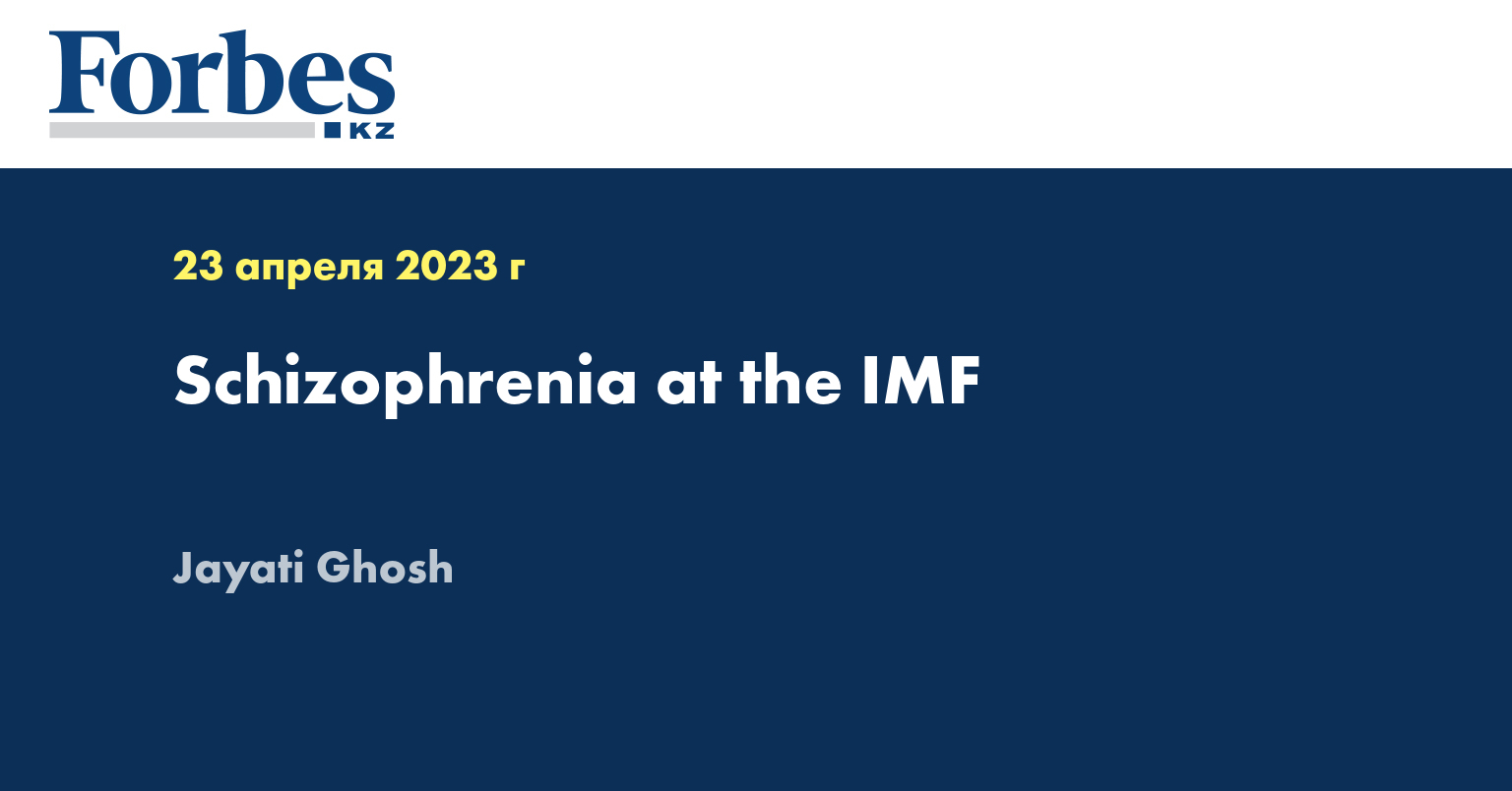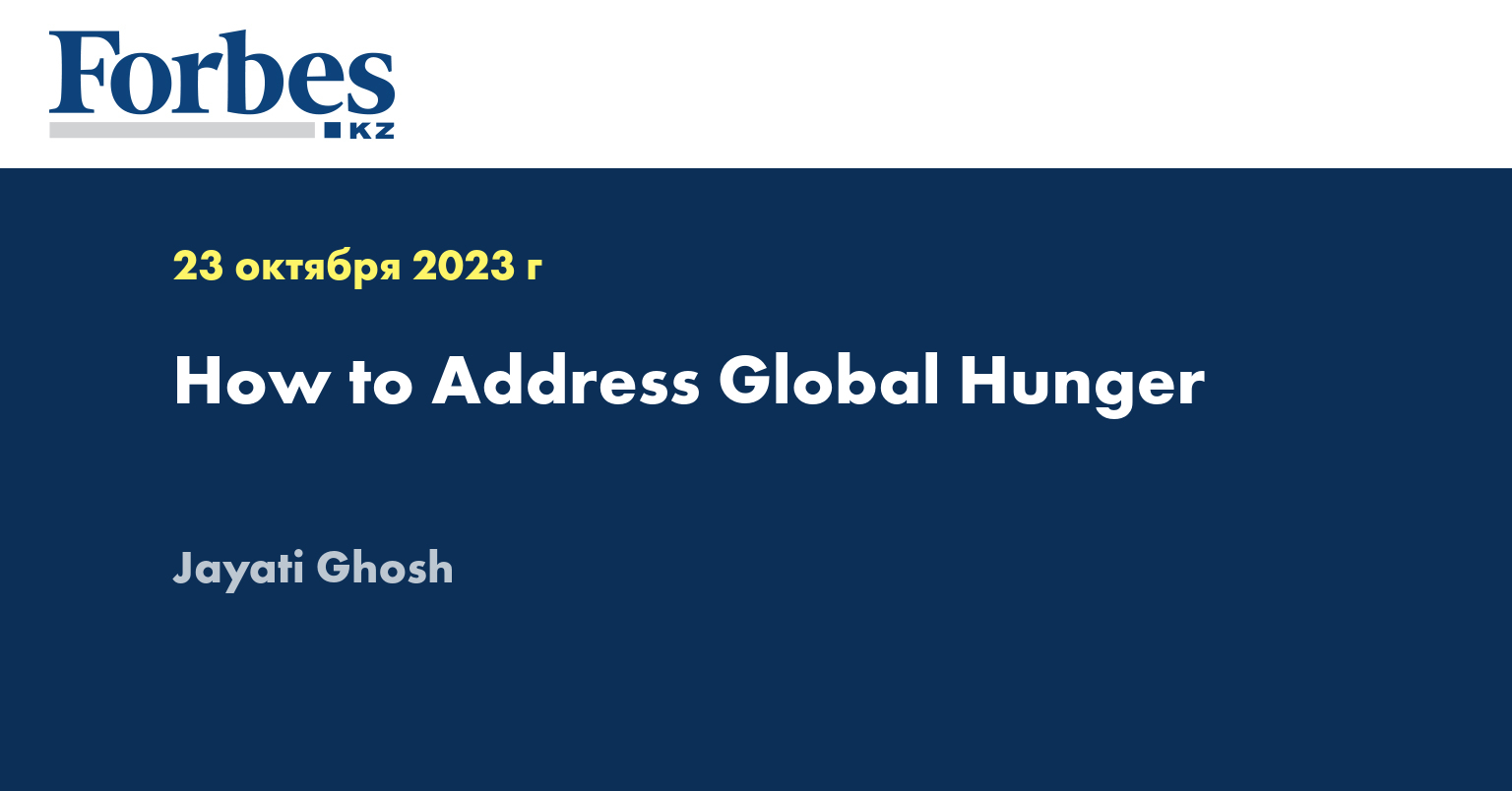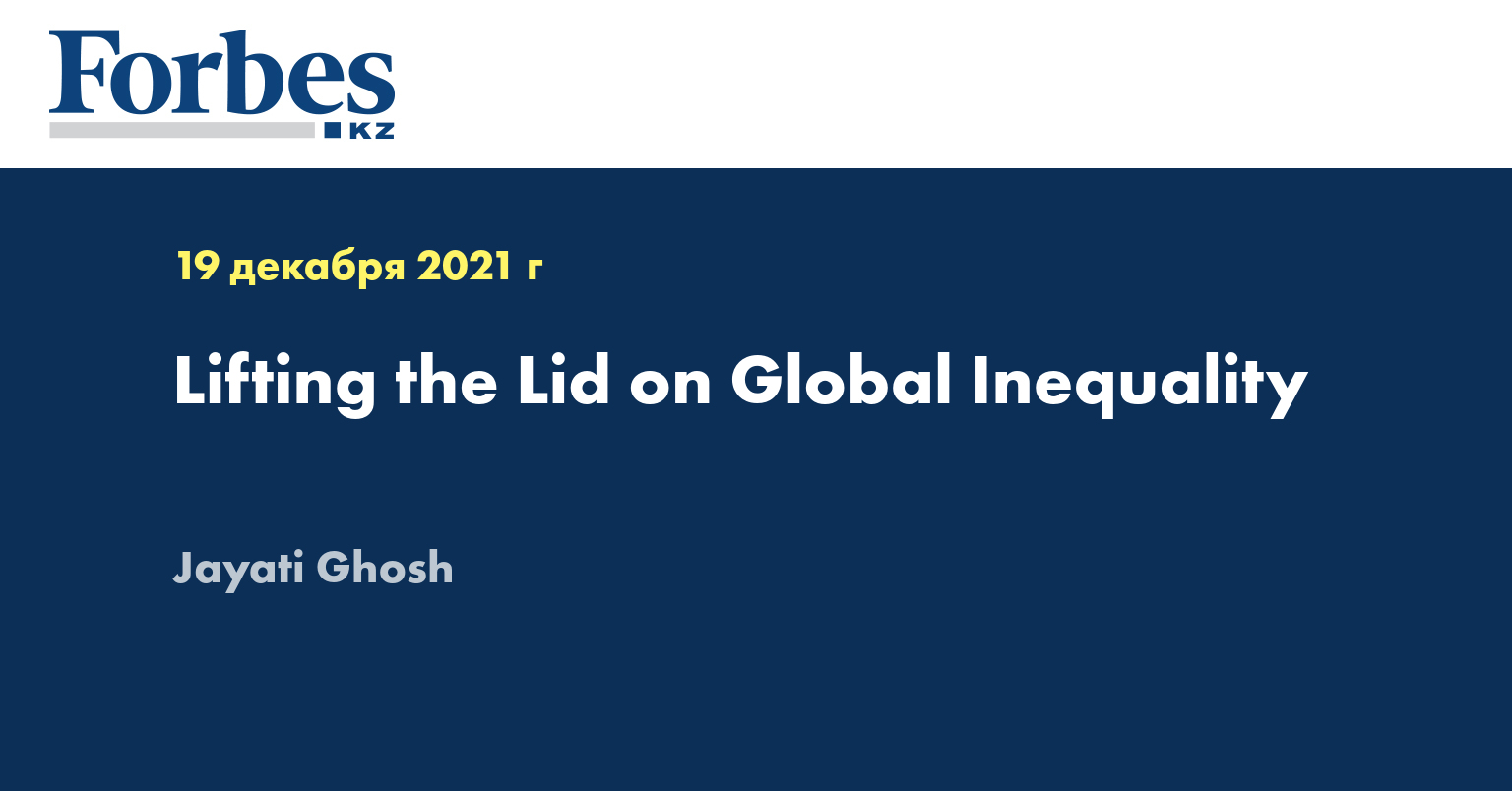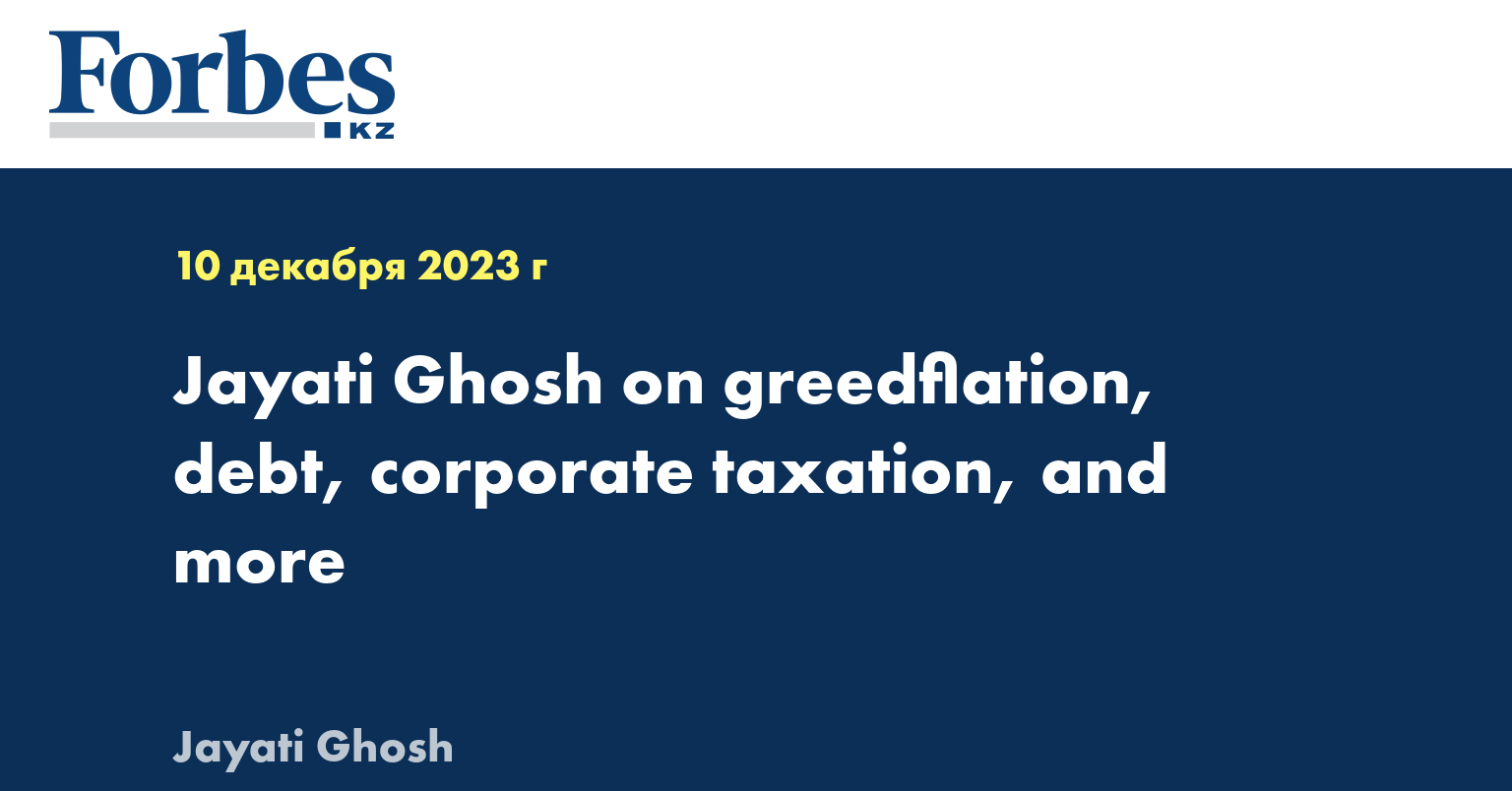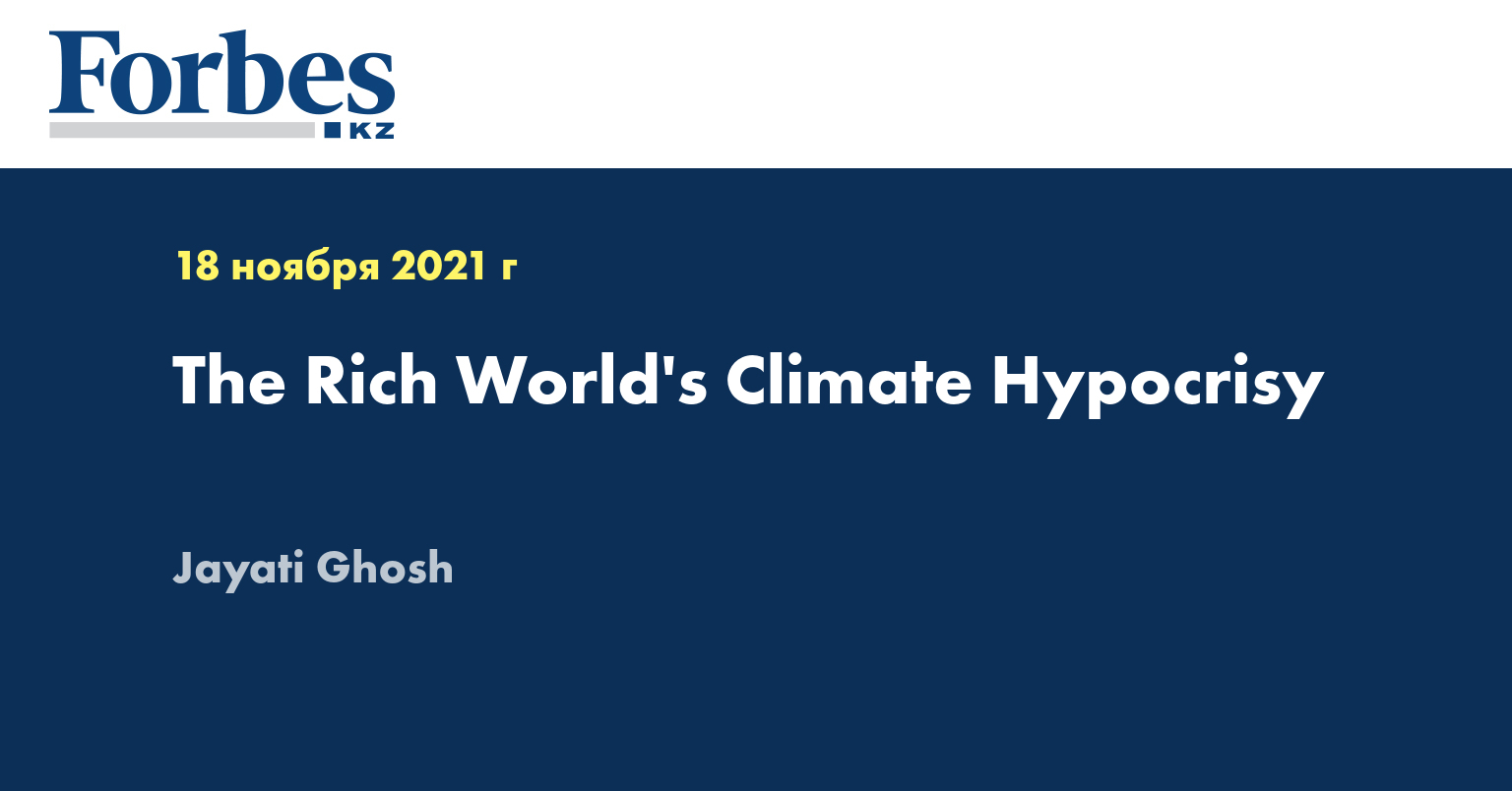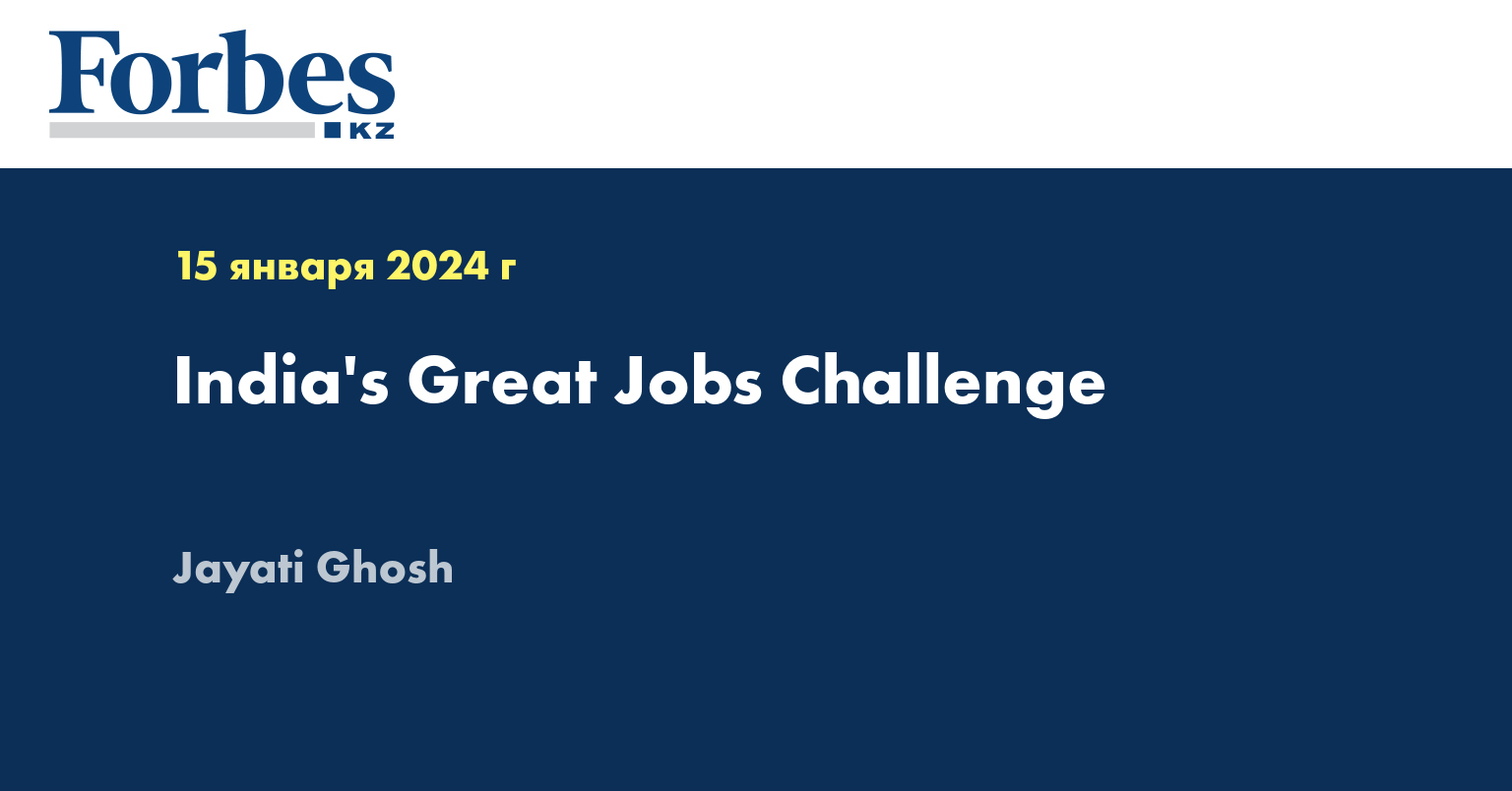NEW DELHI – Among the many inequalities revealed by the COVID-19 pandemic, one of the most striking is the dramatic divergence in governments’ fiscal responses. Economic activity has collapsed worldwide as a result of lockdown measures to contain the coronavirus. But while some developed countries have been able to deploy fiscal stimulus on an unprecedented scale, most have not
15 мая 2020
5 мин.
11107
NEW DELHI – The COVID-19 pandemic has thrust the entire world – rich and poor – into uncharted territory, prompting extraordinary policy responses almost everywhere. The looming economic fallout will be more severe than that of the Great Depression, the 2008 global financial crisis, and perhaps even the two world wars. After all, none of these previous epochal crises involved a simultaneous global collapse of both demand and supply, with little certainty of how long the sudden stop would persist
13 апреля 2020
5 мин.
16022
NEW DELHI – Pandemics like COVID-19, alarming and destructive as they are, can serve a useful purpose if they remind everyone of the critical importance of public health
17 марта 2020
5 мин.
7324
NEW DELHI – Around the world, governments are succumbing to the allure of biometric identification systems. To some extent, this may be inevitable, given the burden of demands and expectations placed on modern states. But no one should underestimate the risks these technologies pose
17 февраля 2020
5 мин.
23998
NEW DELHI – On January 5, masked men and women stormed the New Delhi campus of Jawaharlal Nehru University (JNU), where I am a professor, and attacked the students and faculty they found there with sticks, iron rods, and scythes. The university administration, security guards, and local police not only failed to protect the innocent victims of this rampage, which included vandalism and trespassing, in addition to the violence; they watched and were complicit in the assault. This is Prime Minister Narendra Modi’s India
16 января 2020
5 мин.
9438
NEW DELHI – Injustice, discrimination, and violence are hardly unheard of in India. But today, they are being normalized, enabled, and even encouraged by the state, which is promoting an aggressive form of Hindu nationalism that looks increasingly like mob rule. India’s diversity and complex civilizational legacy are now under assault, and it is shaking the very foundations of Indian democracy
12 декабря 2019
5 мин.
7614
NEW DELHI – The dangers of environmental pollution receive a lot of attention nowadays, particularly in the developing world, and with good reason. Air quality indices are dismal and worsening in many places, with India, in particular, facing an acute public-health emergency. But as serious as the pollution problem is, it must not be allowed to obscure another incipient environmental catastrophe, and potential source of future conflict: lack of access to clean water
14 ноября 2019
5 мин.
6736
NEW DELHI – In the natural world, humans stand out for the complexity of the tools, technologies, and institutions that we have developed. According to the anthropologist Joseph Henrich, we owe this success to our ability to accumulate, share, and adapt cultural information across generations. But just as interconnection causes our “collective brains” to expand over time, isolation can cause them to shrink. Economists should take note
14 октября 2019
4 мин.
9827
It has taken far too long, but it seems that the International Monetary Fund has finally internalized some hard truths about sovereign-debt reduction
23 апреля 2023
4 мин.
86884
Among the multiple crises that have erupted around the world, the avoidable tragedy of growing hunger receives only fleeting mention
23 октября 2023
5 мин.
79209
Globally, the richest 10% of the population is responsible for more than half of all CO2 emissions
19 декабря 2021
5 мин.
76724
While inflation in the advanced economies has subsided, this is largely because the forces that fueled the latest bout of inflation – spikes in global food and fuel prices, as well as supply-chain disruptions – have subsided
10 декабря 2023
12 мин.
74100
Despite the well-known problems with using gross domestic product as an indicator of human development, policymakers around the world still seem to be obsessed with it
09 июля 2022
5 мин.
69302
Many people around the world already consider the United Nations Climate Change Conference (COP26) in Glasgow a disappointment
18 ноября 2021
5 мин.
67007
The World Economic Forum’s annual meeting in Davos, Switzerland, has always been more than a little problematic
22 января 2023
4 мин.
56962
Any optimism about India’s economic prospects must be tempered by its inability to address two related challenges
15 января 2024
5 мин.
55015
Carbon pricing is all the rage these days, at least in the developed world
23 марта 2023
6 мин.
46673
The recent Paris Summit for a New Global Financing Pact was touted by its organizers, including French President Emmanuel Macron, as a groundbreaking initiative to forge a «new contract» between the Global North and South that would address climate change and foster sustainable development
15 июля 2023
6 мин.
46457
Kim Stanley Robinson’s prescient science-fiction novel The Ministry for the Future begins with a stark description of a major heat wave in a northern Indian city that kills millions of people
21 мая 2022
5 мин.
37592
It is difficult to see any winners in the ongoing war caused by Russia’s irrational and devastating invasion of Ukraine
12 марта 2022
5 мин.
41851
The United Nations Climate Change Conference (COP28) in Dubai is an opportunity to reflect on what these large, costly, and carbon-intensive international summits aim to achieve
14 декабря 2023
5 мин.
43695
Confounding the grim prediction made by the British economist Thomas Malthus in 1798, the world currently produces more than enough food for a population that has increased almost tenfold since then
18 марта 2019
5 мин.
11298
NEW DELHI – For some time now, multinational companies (MNCs) have been gaming the rules of the global economy to minimize their tax liability – or even eliminate it altogether. And for some time now, the Independent Commission for the Reform of International Corporate Taxation (ICRICT) has argued for the unitary taxation of MNCs. Fortunately, there have been some encouraging recent signs that the idea of a unitary tax is gaining traction
17 апреля 2019
5 мин.
12498
After four decades of fostering integration through trade and finance, the global economy has begun a painful process of fragmentation
25 декабря 2022
5 мин.
32920
The World Economic Forum’s annual meeting in Davos, Switzerland, has always been more than a little problematic
22 января 2023
4 мин.
56962
The recent Paris Summit for a New Global Financing Pact was touted by its organizers, including French President Emmanuel Macron, as a groundbreaking initiative to forge a «new contract» between the Global North and South that would address climate change and foster sustainable development
15 июля 2023
6 мин.
46457
Over the past two decades, Indian multi-billionaire Gautam Adani’s close ties to Prime Minister Narendra Modi have helped the Gujarati businessman become Asia’s wealthiest person
26 февраля 2023
6 мин.
38774
Last year was a watershed for gender relations. The #MeToo movement rocked establishments around the world, forcing even powerful men to face public scrutiny for their behavior toward women
14 января 2019
5 мин.
10929
У автора нет статей, опубликованных в журнале Forbes Kazakhstan
Подписывайтесь на наш канал в Telegram
Выбор редактора
Обсуждаемые в Соцсетях
Самые Читаемые









